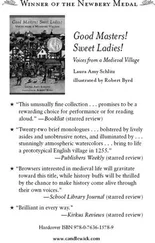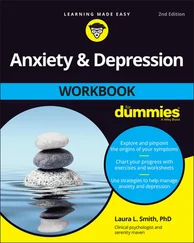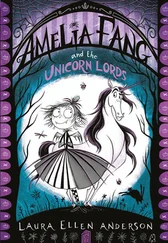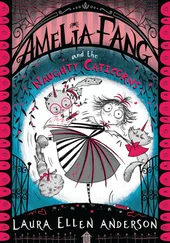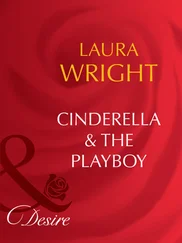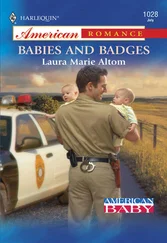Laura Schlitz - Splendors and Glooms
Здесь есть возможность читать онлайн «Laura Schlitz - Splendors and Glooms» весь текст электронной книги совершенно бесплатно (целиком полную версию без сокращений). В некоторых случаях можно слушать аудио, скачать через торрент в формате fb2 и присутствует краткое содержание. Год выпуска: 2012, ISBN: 2012, Издательство: Candlewick Press, Жанр: Старинная литература, на английском языке. Описание произведения, (предисловие) а так же отзывы посетителей доступны на портале библиотеки ЛибКат.
- Название:Splendors and Glooms
- Автор:
- Издательство:Candlewick Press
- Жанр:
- Год:2012
- ISBN:978-0-7636-6246-2
- Рейтинг книги:5 / 5. Голосов: 1
-
Избранное:Добавить в избранное
- Отзывы:
-
Ваша оценка:
- 100
- 1
- 2
- 3
- 4
- 5
Splendors and Glooms: краткое содержание, описание и аннотация
Предлагаем к чтению аннотацию, описание, краткое содержание или предисловие (зависит от того, что написал сам автор книги «Splendors and Glooms»). Если вы не нашли необходимую информацию о книге — напишите в комментариях, мы постараемся отыскать её.
Splendors and Glooms — читать онлайн бесплатно полную книгу (весь текст) целиком
Ниже представлен текст книги, разбитый по страницам. Система сохранения места последней прочитанной страницы, позволяет с удобством читать онлайн бесплатно книгу «Splendors and Glooms», без необходимости каждый раз заново искать на чём Вы остановились. Поставьте закладку, и сможете в любой момент перейти на страницу, на которой закончили чтение.
Интервал:
Закладка:
Dr. Wintermute’s face changed. It lost none of its happiness but became alert and purposeful. “I will certainly see to Madama,” he promised, and, as yet unable to part with Clara, he took his daughter’s hand and followed Lizzie Rose up the stairs.
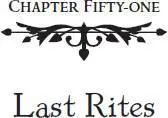
There was a Thing on the ceiling. In the last days of her life, Cassandra felt it brooding over her: a Thing that hovered, waiting. She couldn’t see it, because the canopy of the bed blocked her vision; when she was in her right mind, she told herself it wasn’t there. Nevertheless, the fancy persisted. She felt its presence most powerfully when her eyes were closed and she heard the rush of air beneath its wings. Once she dreamed that she floated up on the ceiling and hung beside it, gazing down at her swollen body. Then she tumbled down again, into that body and onto the bed.
The house had changed. There was mercy in it now. The servants who tended her were strangers who didn’t know her and therefore did not hate her. They treated her as if she were deserving of pity and respect. There was a new doctor, an imposing man with a deep voice and deft hands. He spoke to her kindly, and his drugs eased her pain. In her moments of clarity, she understood that the doctor was Clara’s father. Then the fever returned, and he became a hobgoblin, an impostor. Cassandra shrieked at him, demanding to know where he came from and why he didn’t cure her.
He couldn’t cure her. Even as she clung to life, Cassandra understood that. Her body was failing. At intervals, her old nightmares returned to mock her. She cowered inside a ring of flames: scarlet and yellow and green and blue. She screamed and thrashed with terror until the doctor came and held her, murmuring nonsense, as if she were a sick child.
When the fever broke, her mind was knife sharp. She was wide awake when the lawyer came and she dictated her will, leaving Strachan’s Ghyll to Elizabeth Rose Fawr and Parsefall Hooke. The gatehouse went to Clara, along with any jewels that Parsefall had missed. Cassandra also instructed the lawyer to arrange for Grisini’s burial in the Strachan family cemetery. Grisini was a monster, but she would not deny him the hospitality of a grave.
There came a night when her fever reached its pitch and the pain was harrowing. A priest appeared at her bedside. She saw that her dressing table had been covered with a white cloth and set with a crucifix and candles. “Asperges me, Domine, hyssopo, et mundabor; lavabis me et super nivem dealbabor.” Her father had taught her Latin when she was small, but she no longer understood the words of the psalm. She had forgotten most of the faith of her childhood, but not all; when she realized that the priest had come to administer the last rites, she opened her lips and began to confess.
Afterward she had no idea what she said. Her sins were too numerous to name, and halfway through the telling of one, she thought of another. Often she broke off to explain that she had been tempted beyond her strength; what she had done wasn’t entirely her fault. She told how she had stolen the jewel from Marguerite, and sobbed with anguish for her lost friend. She tried to recount the spells she had cast, but the priest shook his head in bewilderment, and she knew he didn’t believe her. She could not tell if what she felt was remorse or only sorrow, but she went on confessing until her voice gave out. As she drifted into sleep, she felt the soothing touch of holy oil on her eyelids. She thought, Now the Angel of Death will come down from the ceiling and carry me away. But she was wrong. The next day she was better, and the doctor said she had rallied.
The dog Ruby seldom left her bed. Even when Cassandra was too weak to raise her head, she heard the spaniel snoring, and was comforted by its animal presence. The aroma of food sickened her, but she enjoyed the smell of the dog: a rank and earthy odor, like Stilton cheese. Having the dog on her bed helped to keep the Thing at bay.
Often when she awakened, the children were in the room. Lizzie Rose visited her faithfully, and so did Clara. Parsefall came seldom, and never alone. Cassandra thought that he was more intuitive than the others; he sensed the presence of the Thing on the ceiling, and he didn’t like it. Unlike the girls, he didn’t know how to behave in the sickroom: he paced, fidgeted, and swore, forgetting to lower his voice. “P’raps she’d like to see the puppets,” he suggested one afternoon.
Cassandra had been half asleep, but his words brought her out of her stupor. She blinked and concentrated until the room came into focus. The children were lounging before the fire. They were warmly and handsomely dressed. Cassandra supposed that the new clothes, like the servants, had been sent up from London.
Parsefall persisted. “She ’asn’t anyfink to do,” he pointed out, “and it’s dull for ’er, just lyin’ there. She might like to see the puppets.”
Cassandra sucked the saliva in her mouth, running her tongue over her gums. “The puppets,” she said hoarsely. “They dance, don’t they? I want to see them dance.”
Parsefall scrambled to his feet. “There, di’n’t I tell you? She wants ’em. There’s an ’ornpipe, and a skeleton dance, and a ballet —” He stopped. “’Cept there’s no ballet, ’cos I don’t ’ave the puppet for it. But we could give you the ’ornpipe or the Magnetic Skeleton. Which do you want? The skeleton’s better.”
Lizzie Rose demurred. “I don’t think the skeleton dance —”
“But the skeleton dance is better than the ’ornpipe,” Parsefall insisted. “She won’t mind a graveyard and a few bones.”
“Bones,” echoed Cassandra. “I don’t mind bones.” She shut her eyes, and sleep overwhelmed her. The children’s voices seemed to swell in volume, and then diminish. She slept.
When she opened her eyes, she saw that the children had erected a stage opposite the bed. There was a backdrop painted with tombstones, and Lizzie Rose was tuning the strings of a small violin. Parsefall pointed to Cassandra. “See? She’s awake. She woz just resting ’er eyes.”
“She won’t be able to see lying down,” said Clara. “We’ll have to prop her up.”
Cassandra moaned in anticipation. It hurt her to be moved, especially by the children, who lacked the strength to lift her easily. But neither Clara nor Lizzie Rose understood that the groan was a protest. They yanked and shoved her into a sitting position, wedging a mountain of pillows behind her back.
The children took their places. Lizzie Rose slipped her fiddle under her chin and lifted the bow. Parsefall ducked behind the canvas. The Magnetic Skeleton capered onto the stage: a grotesque little figure with an insinuating grin. Cassandra found herself grinning back. It tickled her that the boy dared to make fun of the Thing on the ceiling. When the skeleton’s legs broke away from the torso and began to jig alone, her grin broadened; when the skull munched the air, she clacked her teeth in sympathy. As the dance came to an end, she cried, “Encore!” but before the dance began again, her attention shifted to Clara.
The girl was clapping enthusiastically. Her back was straight, and there was a smile on her lips. Nevertheless, she was miserable: Cassandra had not the slightest doubt of that. She snapped, “What’s the matter with you?”
Clara gave a little jump. She responded, “Nothing, ma’am,” but Cassandra contradicted her.
“You’re envious — that’s what ails you.” She felt a childish triumph in being able to pinpoint the problem. “I know envy when I see it! You miss being part of the show. I remember now; you want to be a dancer. Lud, child, if that’s what you want, don’t sit with your hands in your lap! Go and dance for me!”
Читать дальшеИнтервал:
Закладка:
Похожие книги на «Splendors and Glooms»
Представляем Вашему вниманию похожие книги на «Splendors and Glooms» списком для выбора. Мы отобрали схожую по названию и смыслу литературу в надежде предоставить читателям больше вариантов отыскать новые, интересные, ещё непрочитанные произведения.
Обсуждение, отзывы о книге «Splendors and Glooms» и просто собственные мнения читателей. Оставьте ваши комментарии, напишите, что Вы думаете о произведении, его смысле или главных героях. Укажите что конкретно понравилось, а что нет, и почему Вы так считаете.


